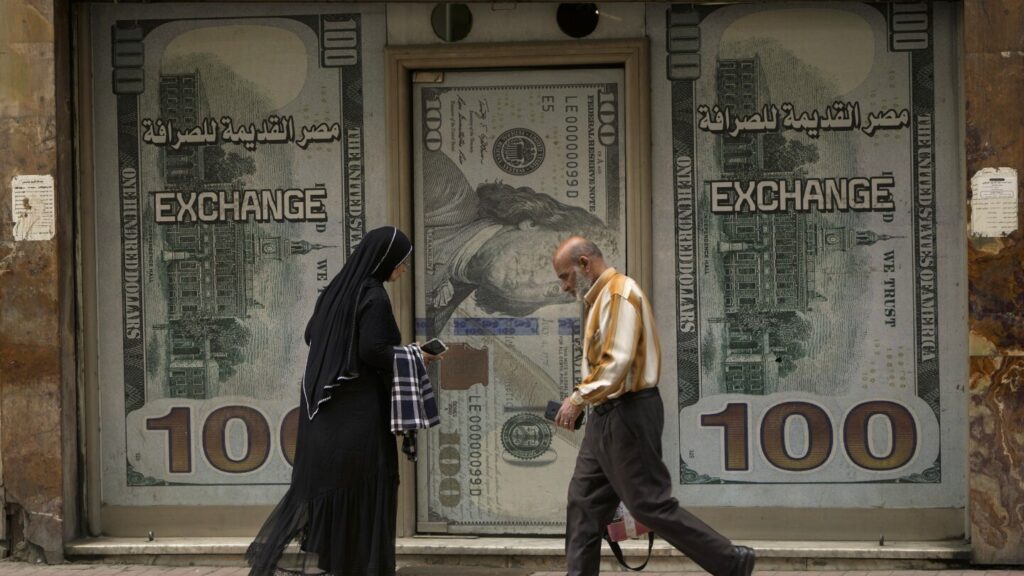Egypt Floats Currency Amid Economic Struggles and Secures $8 Billion IMF Bailout
In a decisive move to stabilize its battered economy, Egypt has floated its currency and secured an expanded bailout loan from the International Monetary Fund (IMF). The Central Bank of Egypt (CBE) announced these measures early Wednesday, which saw an immediate effect on the value of the Egyptian pound, dropping more than 60% against the U.S. dollar. The IMF loan, initially agreed at $3 billion in 2022, has now increased to $8 billion.
Currency Flotation: A Double-Edged Sword
Floating the Egyptian pound, combined with a significant increase in the main interest rate to 27.75%, is aimed at combating inflation and attracting foreign investment. By allowing the currency’s value to be determined by global market forces, Egypt hopes to impose economic discipline and stabilize its financial system. However, this move resulted in a dramatic devaluation, with the pound trading at more than 50 to the dollar, up from the previous rate of about 31.
Background of Economic Woes
Egypt’s economy has been grappling with a series of challenges over recent years:
- Government Austerity: Prolonged periods of austerity have taken a toll on public welfare.
- Global Influences: The COVID-19 pandemic severely disrupted economic activities.
- Geopolitical Crises: The fallout from Russia’s invasion of Ukraine strained Egypt’s finances, especially given that Egypt is a leading wheat importer.
- Regional Conflicts: Recent turmoil, like the Israel-Hamas war in Gaza and Houthi attacks on Red Sea shipping routes, further exacerbated the economic strain by slashing Suez Canal revenues.
Tackling Black Markets and Inflation
The CBE’s measures aim to end black market currency trading and curb soaring inflation, which reached an alarming 31% in January. By liberalizing the exchange rate, the authorities anticipate easing the pressure on the economy.
“We have sufficient foreign currency to cover our obligations, particularly after the unification of the exchange rate,” stated Governor Hassan Abdalla of the CBE. The bank has pledged to take every necessary step to fight inflation, targeting a stabilization of the economy in the months to come.
Securing the IMF Bailout and Future Prospects
A crucial aspect of the economic overhaul is the IMF’s augmented bailout package. This newly secured $8 billion deal is contingent on Egypt’s demonstrated commitment to economic reforms, such as a free-floating currency and reduced infrastructure spending.
“The authorities are showing strong commitment to act promptly on all critical aspects of their economic reform program,” remarked Ivanna Vladkova Hollar, IMF mission chief for Egypt. The reforms are expected to be pivotal in securing additional loans from other financial institutions, including the World Bank.
The Social Impact
The economic reforms and the subsequent devaluation have already impacted Egyptian citizens, with nearly 30% of the population living in poverty. The rising cost of essential goods continues to deepen daily hardships, exacerbating the financial strain on middle and lower-income groups.
Conclusion
As Egypt navigates these tumultuous economic waters, the government’s commitment to reform and the IMF bailout are seen as essential lifelines. While the immediate future may bring increased financial hardship for many Egyptians, the hope is that these steps will lay the groundwork for stronger, more sustainable economic health in the long run.
For more information, visit the Central Bank of Egypt.
